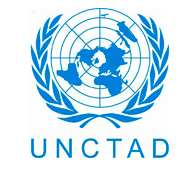Tempo de leitura: 2 minutos
Special economic zones are not just a product of the effort to free capitalism from democratic authority. They are a response to a broader anxiety about power imbalance between multinational corporations and national governments.
Angus Burgin Fall 2023
Crack-Up Capitalism: Market Radicals and the Dream of a World Without Democracy
by Quinn Slobodian
Metropolitan Books, 2023, 352 pp.
Just three years after his famous declaration that history had come to an end, Francis Fukuyama published a little-noticed piece, in the now-defunct journal New Perspectives Quarterly, suggesting the need for a caveat. In some Asian contexts, he noted, an alternative framework had taken hold that presented an implicit competitor to the model his more famous publication had hailed. Some states were embracing market competition, but shorn of the democratic political system that was often presumed to be its cognate. Perhaps, he now implied, the ascent of capitalism need not entail the triumph of democracy.
Fukuyama was not sanguine about the long-term prospects for what he called “soft authoritarianism.” It relied on an unlikely presumption that societies would remain “childishly obedient” even after achieving widespread prosperity and participating in the global marketplace of ideas. Regardless, it would almost certainly not be “exportable outside of culturally Confucian areas.”
Surveying global politics three decades later, however, this model looks more prescient than Fukuyama’s famous proclamation of a liberal-democratic “end of history.” The intervening period has been marked not by the inexorable spread of democratic institutions, but rather by a cascade of experiments in authoritarian capitalism. The freedom to choose one’s goods and services, it has become clear, need not entail the freedom to choose political leaders.
The historian Quinn Slobodian has emerged as the great chronicler of this authoritarian turn in the theory and practice of capitalism. His last book, Globalists, showed how some of the leading neoliberal thinkers of the midcentury years embraced transnational financial institutions as a check on the interventionist and redistributive capacities of the nation-state. In Crack-Up Capitalism he turns his attention to the past half-century, explaining how market advocates pioneered a different approach to restricting the state: the special economic zone.
Angus Burgin is Associate Professor of History at Johns Hopkins University and author of The Great Persuasion: Reinventing Free Markets since the Depression. He is currently writing a book on the intellectual history of the internet.







Os comentários foram encerrados, mas trackbacks e pingbacks estão abertos.